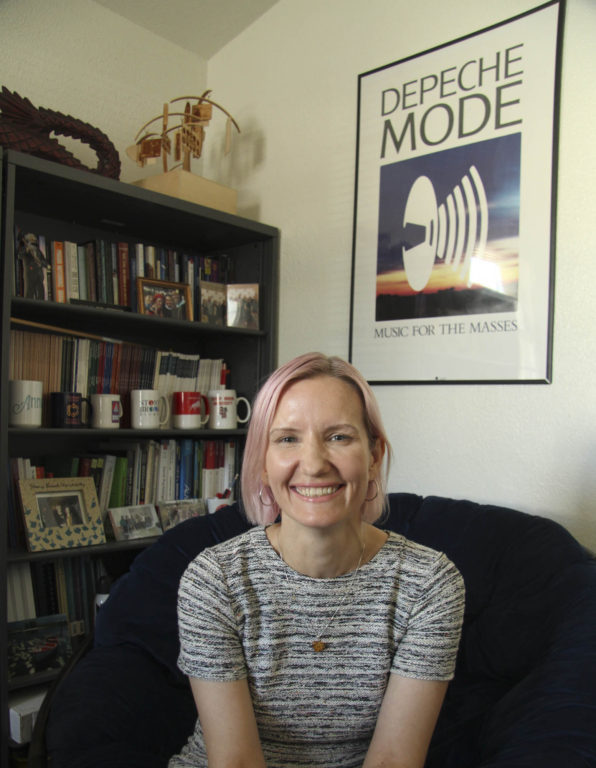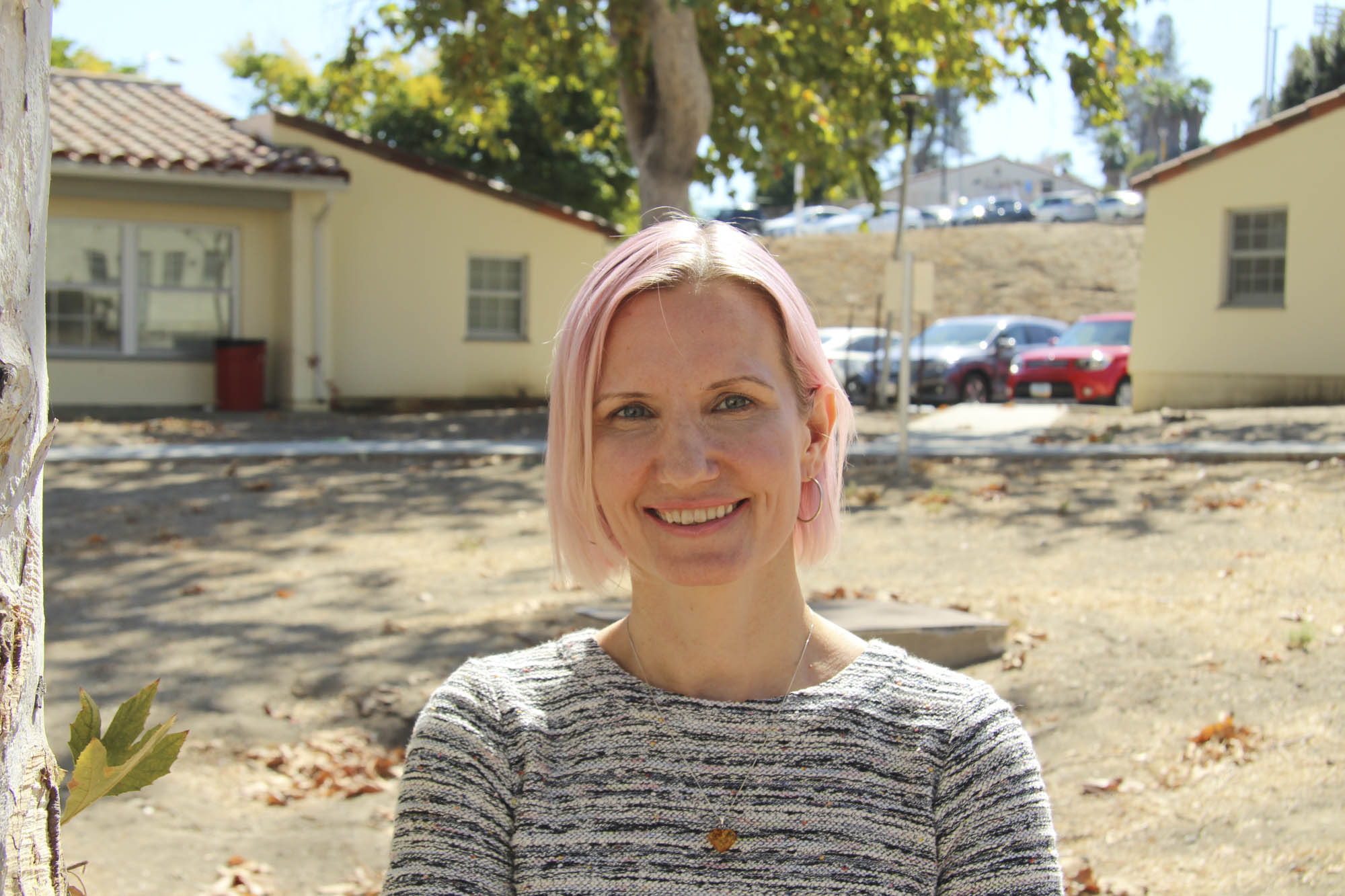
Anna Bruzzese remembers growing up in socialist Poland when the Berlin Wall dominated her homeland and martial law—supported by the Soviet Union—was in control.
In Poland, students entering college need to declare their major and take entrance exams. Bruzzese chose sociology only because it was one of the easier entrance exams she found less difficult—and she discovered she loved the topic.
“With sociology I realized, maybe I’m not the source of all my problems. Maybe some of it comes from the outside and my environment,” Bruzzese said. “You really have to understand the impact of different forces to explain why we do anything and I find that endlessly fascinating.”
Bruzzese has been a sociology professor at Pierce for 13 years, and is a representative of the statewide Academic Senate for California Community Colleges. She is a past president of the college’s Academic Senate.
Though she wasn’t sure what to study before finding sociology, she believed education would be a major part of her career. Her mother has a doctorate degree in psychology and her father has a doctorate in political science. When Bruzzese was a child in Poland, she would often see her mother typing her dissertation paper on the kitchen table.
“I wanted to sort of follow in their footsteps,” Bruzzese said. “My parents expected a lot from me in terms of education and I was worried that maybe they wouldn’t approve of me if I didn’t continue.”
Bruzzese’s first stay in America was in 1989, when a family friend offered to host her in New Jersey for her junior year of high school and she agreed. By the time she returned home to Poland at the end of the school year, the Berlin Wall fell and the socialist regime had ceased.
The biggest change she recalls after the regime ended was witnessing homelessness, along with the freedom for those who could afford it to buy new products that weren’t in the market before.
“When McDonald’s first opened in Poland it was a hip place to take your date to eat,” Bruzzese said. “You’d see people in suits having lunch there. It wasn’t super cheap either.”
In 1992 Bruzzese transferred to Stony Brook University in New York where she received her bachelor’s and master’s degrees.
In 2006, she landed a job at Pierce College. She earned her doctorate a year later.
“I really think sociology is very liberating. I love to share that with students,” Bruzzese said. “Honestly, I’m humbled because a lot of these students deal with very serious things and overcome very serious obstacles. It’s inspiring.”
Within two years, Bruzzese was promoted and became the History, Philosophy and Sociology department chair, a position she held for five years.
“What I enjoy about it the most is meeting people outside of campus and other faculty,” Bruzzese said. “I’m more aware of certain issues that I probably wouldn’t have been aware of that the statewide Academic Senate really emphasizes like issues of diversity and equity.”
Cara Gillis, a philosophy professor and current History, Philosophy and Sociology department chair, described Bruzzese as thoughtful.
“She is always trying to make sure she matches the way she’s teaching to the ways students typically learn,” Gillis said. “We’re really fortunate to have somebody that’s so engaged in education and pedagogy.”
James Mckeever, a sociology professor at Pierce, said Bruzzese goes above the call of duty when it comes to serving Pierce.
“I think she’s an amazing professor who’s dedicated to her students but also dedicated to larger campus issues that affect faculty and students,” McKeever said. “She’s willing to take on those roles outside of the classroom that some people don’t really want to take on because she cares about the bigger issues of education.”
Bruzzese said teaching continues to be a path for her to learn more, just as it was when she first studied sociology in Poland.
“I want my students to maybe start asking these questions that we all need to keep asking like, why do we do things? Why do we aspire what we aspire? I want people to ask these questions really throughout their lives,” Bruzzese said. “I want to keep asking myself these questions. It helps me. It’s like a two-way street.”




